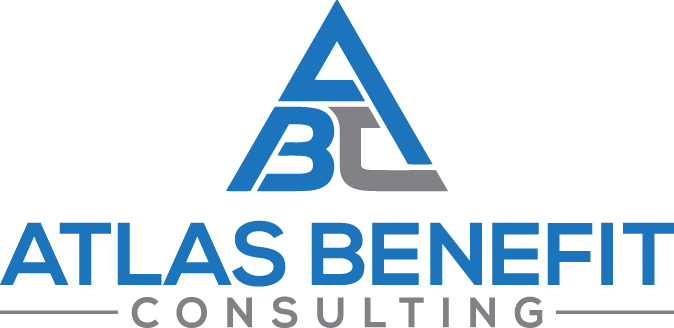Mental conditions and disorders are considered the most difficult to rate. Mental health looks different in every individual, symptoms vary, can be hard to measure, and they fluctuate in intensity and variables.
How Does the VA Rate Mental Conditions?
When you are service-connected for a mental condition, your medical evaluations will help the VA raters determine how serious or severe your symptoms seem to be. You don’t have to have EVERY single item in each category to qualify for that rating. You need to look at which % you can cross off the most.
We want to stress that MANY veterans are underrated for mental conditions, as it can be really hard to get the most accurate rating based from a doctor’s appointment. The symptoms, though they may be serious or severe, are often not “visible” and many veterans are hesitant to vulnerably divulge the full list of what they are experiencing and suffering from.
It’s crucial to be very straightforward about how these symptoms affect daily life and focus on them during the psych appointment. A list is handy to have during these appointments, as you can jot down symptoms as they occur over a few weeks.
Mental Ratings Based on Severity of Symptoms
10%
- occupational and social impairment due to mild or transient symptoms which decrease work efficiency and ability to perform occupational tasks only during periods of significant stress
- OR symptoms controlled by continuous medication
30%
- occupational and social impairment with occasional decrease in work efficiency and intermittent periods of inability to perform occupational tasks (although generally functioning satisfactorily, with routine behavior, self-care, and conversation normal)
- depressed mood
- anxiety
- suspiciousness
- panic attacks (weekly or less often)
- chronic sleep impairment
- mild memory loss (forgetting names, directions, recent events)
50%
- occupational and social impairment with reduced reliability and productivity
- flattened affect (inability to experience full range of emotions; significantly reduced emotional expression)
- circumstantial, circumlocutory, or stereotyped speech (includes excessive/nonessential details, unable to directly address a topic, speech that is imitative or repetitively patterned)
- panic attacks more than once a week
- difficulty in understanding complex commands (instructions/directions with multiple parts)
- impairment of short and long term memory (only remembers highly learned material, forgets to complete tasks)
- impaired judgment
- impaired abstract thinking (difficulty thinking about things that are not concrete or right in front of them)
- disturbances of motivation and mood (psych symptoms cause shift in mood and motivation)
- difficulty in establishing and maintaining effective work and social relationships (still able to do so to some extent)
70% – must have deficiencies in most areas of their life (social, work, school, family/friends, mood, judgement, thinking) to get 70%.
- suicidal ideation (thoughts of suicide – with or without a plan)
- obsessional rituals interfere with routine activities (OCD tendencies, will not dine out if back is to the door)
- speech intermittently illogical, obscure, or irrelevant (says things that are completely unrelated to the conversation, does not make sense at all, or are totally out of context)
- near-continuous panic or depression affecting the ability to function independently, appropriately and effectively (feels symptoms of panic/anxiety/depression most days/nights)
- impaired impulse control (being irritable for no reason with periods of violence, excessive spending leading to huge debt)
- spatial disorientation (when in familiar surroundings, forgets where they are – similar to Alzheimer’s)
- neglect of personal appearance and hygiene (does not always shower, brush teeth, change clothes, etc.)
- difficulty in adapting to stressful circumstances (including work or a work-like setting)
- inability to establish and maintain effective relationships (UNABLE to make/keep relationships with friends and/or family members)
100%- must be totally occupationally & socially impaired to get 100%. If able to go to work most days and maintain a job, most likely not at 100%.
- Total occupational and social impairment
- gross impairment in thought processes or communication (unable to communicate or think clearly due to severity of psych symptoms)
- persistent delusions or hallucinations
- grossly inappropriate behavior
- persistent danger of hurting self or others (constant reckless driving, uncontrollable anger, fights, abuse, history of harming self/others with thoughts of doing so or a plan to do so again)
- intermittent inability to perform activities of daily living including maintenance of minimal personal hygiene (UNABLE to shower, brush teeth, change clothes due to severity of psych symptoms)
- disorientation to time or place (unaware of what year it is, who the president is, where they are)
- memory loss for names of close relatives, own occupation, or own name
Important for Evaluation
When being evaluated and seen for mental health issues, provide as many details about about how it affects your work, social, day to day functioning, interactions with family, friends, etc. Writing down feelings and struggles as they come can be extremely helpful for your appointment. For example, “Tuesday I wasn’t able to get out of bed and function. I slept all day.”
Mental Health Resources
- Our Blog posts on mental health:
- *National Alliance on Mental Illness
- *Make the Connection
- *Military Disability
- *VA Mental Health Help
- *More VA Mental Health Help
Your Next Step
It’s important to make sure you are accurately rated by the VA. The vast majority of veterans we work with are NOT accurately rated. Use the button below to contact an amazing member of our team. The free consultation will help us quickly identify if you’re eligible for our services. If you are not eligible, we will suggest other methods that may help.
Click Here for Info on Your Free Consultation

